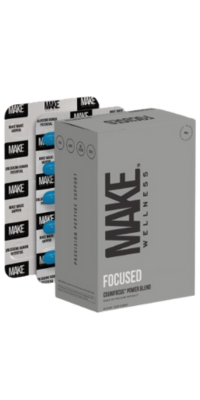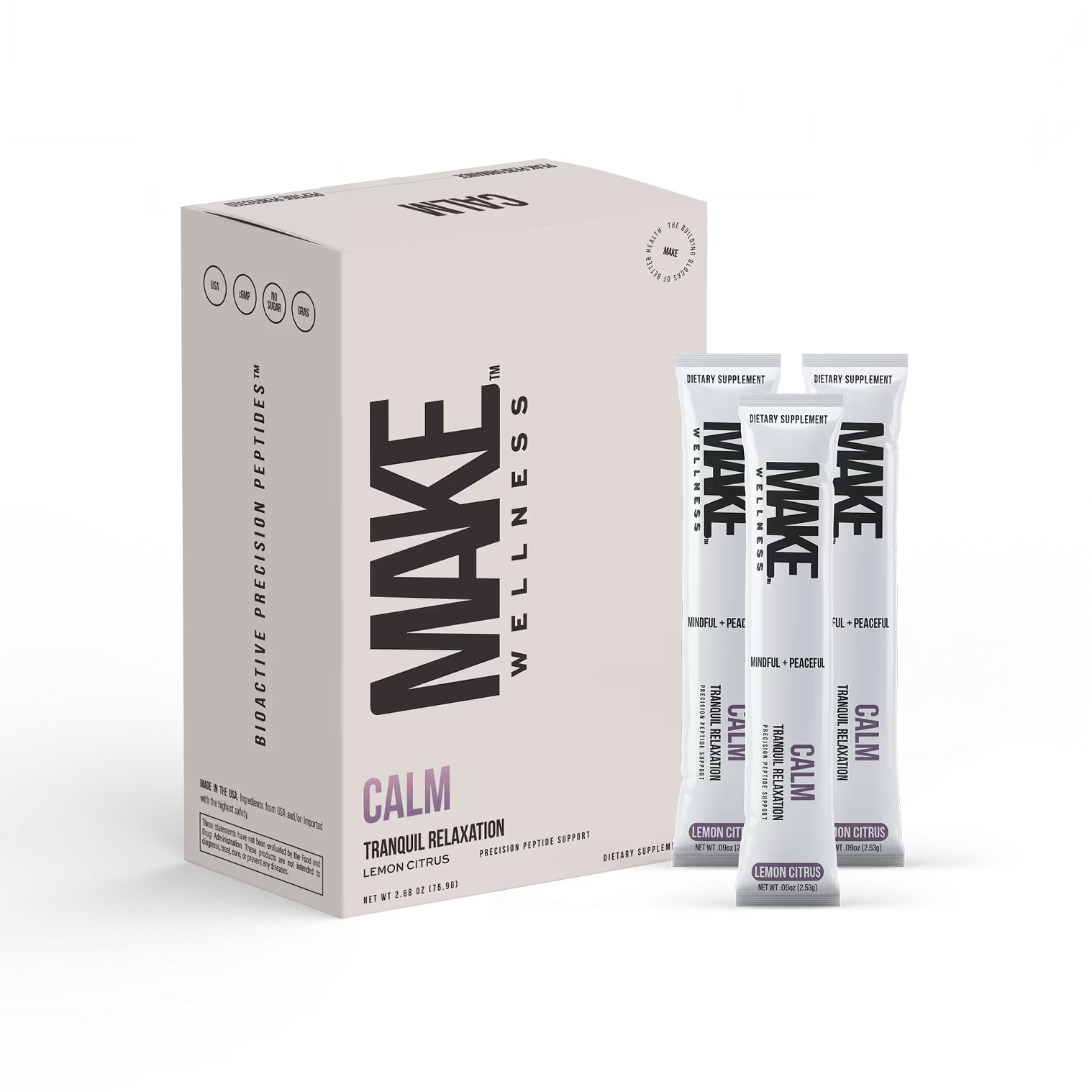
Contents
No elements found...
Retirement is supposed to be the reward for decades of hard work, but for way too many of we men over 50, it’s more a source of stress than comfort.
Nearly two-thirds of Baby Boomers (those turning 65 between 2024–2030) lack enough savings to maintain their lifestyle into retirement, with more than half relying almost entirely on Social Security and typical account balances falling below $250,000 ([prnewswire.com][1]). Social Security’s average monthly payout of around \$1,922 hardly covers today’s costs ([investopedia.com][2]), and only 44% of Boomers feel financially prepared to retire ([kiplinger.com][3]).
But the anxiety goes beyond money. Once we leave the daily grind, many men lose daily rhythm, purpose, and social connection. Nearly 17% of retirees report feeling isolated, and a solid majority—approximately 77% of those in their 50s and 60s say they haven’t planned for how they’ll spend their newfound free time ([businessinsider.com][4]).
If you’re anxious about the possibility that you’ll outlive your savings, lose your sense of purpose, or miss the structure and camaraderie of your career, welcome to the club.
But there are retirement anxiety solutions that we can implement to address both the financial and emotional sides of the problem.
One of them is building a home-based affiliate or network marketing venture. Doing that lets you create that much-needed second comma in your portfolio (extra income). At the same time it can give you renewed identity, and meaningful connection with other guys pulling on the same oars. All from your kitchen table.
What’s Fueling Retirement Anxiety
Let’s be honest. Most of us grew up with a picture of retirement that involved a paid-off house, a steady pension, and plenty of time to enjoy grandkids or maybe travel a bit. That picture didn’t include wondering if you’ll run out of money—or purpose—before you run out of time.
But that’s exactly what’s keeping a lot of guys up at night right now. If you feel like you’re staring down retirement with more questions than answers, you’re not alone. Here's what’s really fueling the stress.
The Money Problem
The numbers aren’t kind. The average American nearing retirement has about $308,000 saved, but most experts say you’ll need at least twice that to retire comfortably ([listwithclever.com][5]). And worse, that number is skewed by the small percentage of folks that earn a lot so have saved a lot. The median savings amount for our group is $185,000. Which means half o us have less than that,That gap—that missing comma in your portfolio—is where the anxiety starts to creep in.
Even if you’ve done some saving, the costs keep rising. Healthcare alone could run you upwards of $165,000 in retirement, and that’s if you stay relatively healthy.
Long-term care? That’s a whole other monster. One bad fall or a chronic condition, and you could drain your accounts fast.
Then there’s Social Security. Yes, it’s still there (for now) but the average check is about $1,900 a month. That’s not enough to live on unless your lifestyle is somewhere between frugal and bare-bones.
And with warnings that the trust fund may start paying reduced benefits by 2034 if Congress doesn’t act, it's not something you want to depend on too heavily.
So, yeah.
The financial anxiety is real. But it’s only half the story.
Lack of Purpose

Retirement doesn’t just mess with your wallet. It messes with your head.
Think about it: for 30 or 40 years, your job gave you a reason to get up in the morning. It gave you structure, identity, and—whether you liked your coworkers or not—a built-in social circle.
You mattered. You were needed. You were in motion.
Then suddenly, it all stops.
For a lot of men, that shift hits harder than we expect.
Nearly 34% of adults aged 50–80 report feeling isolated in the past year ([healthyagingpoll.org][6]). A lot of us struggle with depression or a loss of purpose.
And it’s not just boredom. Not knowing who you are anymore when you’re no longer “the guy who runs the show” or “the one everyone calls when they need something” changes how you see yourself in the world.
This emotional void doesn’t get talked about enough, but it’s a major part of what’s driving the anxiety around retirement.
Yes, not having enough money is a fear and a challenge, but so is not having something to do.
Retirement anxiety isn’t just about money. It’s about losing momentum, identity, and purpose—right when you finally have time to live.”
The Missing Comma
If you’ve ever looked at your retirement account and thought, “That comma’s in the wrong place,” you’re not the only one.
The traditional model of retirement, the so-called “three-legged stool” of pension, personal savings, and Social Security, is missing a leg or two for most of us.
Pensions are nearly extinct. Personal savings often fall short. And Social Security? That leg’s wobbly and shrinking fast.
That’s why I talk about the missing comma.
I didn’t come up with the idea of the Missing Comma by reading books or listening to influencers in their twenties. I came up with it because I lived it.
Back in the 2008 fiasco, I got crushed in the real estate crash.
I’d built what I thought was a solid portfolio. On paper, it looked good.
But, as the saying goes, it wasn't worth the paper it was printed on. Leverage can make you look like a genius when things are going your way.
It can be worse than divorcing a trophy wife if it goes in the wrong direction.
And when the dust settled and I was at less-than-zero, I realized that the future I’d mapped out could disappear almost overnight.

That’s when I started looking for something different. Something I could control. I didn’t want to go back to chasing commissions or answering to a boss half my age.
I wanted income, sure—but I also wanted autonomy, flexibility, and a sense that what I was doing actually mattered beyond just the cash.
That path led me to affiliate marketing and eventually into network marketing.
It didn’t replace my full-time income overnight, but it gave me momentum. It gave me something to build. And it gave me options, which is what I was missing.
So what I'm really selling is a shift in mindset. It’s the idea that retirement for most of us is going to take a slightly different path than what me way have once thought.
We're going to create something new that adds another income stream and a reason to get out of bed in the morning.
For guys like us, that “something new” doesn’t have to mean starting a brick-and-mortar business or going back to school. We’re not trying to be 25 again; we just want more control.
More options.
Something that lets us fund our life on our own terms and stay mentally sharp while we do it.
That’s where home-based business comes in.
Affiliate marketing. Network marketing. Digital products.
These aren’t gimmicks; they’re tools.
Tools that let you turn your experience, your voice, and even your spare time into cash flow. Tools that give you leverage without the overhead. And more importantly, they give you agency.
You don’t need a million-dollar portfolio to retire comfortably. But if you don't have one, you need cash flow that makes up the difference.
And ideally, it’s cash flow that doesn’t require you to punch a clock or drive for Uber just to get by.
Finding your missing comma means building something that works for you.
Something that supports your retirement and your sense of identity.
And the best part? You can start it from your kitchen table.

Why Affiliate & Network Marketing Works for 50+ Men
Let’s get something straight: I’m not here to sell you a fantasy.
Starting a home business isn’t magic. It takes effort. It takes being willing to learn a few new things and maybe do a few things that aren't yet in your comfort zone.
But for guys like us, affiliate and network marketing check a lot of boxes that other “second act” options just don’t.
Low Barrier, High Potential
All you need is a laptop, an internet connection, and a willingness to learn a few new skills.
Most affiliate programs are free to join. Network marketing companies may have a small buy-in, but the costs are nothing compared to a franchise or a traditional startup. Maybe a few hundred bucks.
This is a business you can build lean.
You’ve Already Got What It Takes
You’ve got experience. You’ve had conversations, solved problems, built relationships. Maybe you’ve managed teams or raised a family or survived a few curveballs life threw your way.
That matters here.
Affiliate marketing is about sharing things you believe in with people who need them. Network marketing adds a human layer to that—conversations, community, support. You’re not just making money—you’re helping other people solve real problems, and that feels good.
And pays well.
You Get to Control the Pace
Don’t want to hustle 12 hours a day? Good. Neither do I.
You can start small. A couple of hours a day. You set the schedule. You decide what to promote. You build something that fits your life instead of being chained to a job that runs it.
And here’s the best part: this isn’t trading time for dollars.
Done right, affiliate and network marketing create leverage.
You do the work once—set up a funnel, write a follow-up email, train a new team member—and it keeps paying you.
That’s the kind of income that lets you sleep a little easier at night.
Built-In Community
One of the things nobody warns you about in retirement is how much you’ll miss being part of a team. The coffee breaks, the locker-room banter, even the dumb meetings.
Network marketing, especially, fills that gap. You get plugged into a group of people working toward something together. You mentor, you get mentored, and you build relationships that matter.
We're not looking to become internet famous. We're looking to build a business that throws of steady, reliable income. Income that stacks on tp of our retirement or let's us invest more before we pull that lever. Something that funds your life and reminds you that you’ve still got a lot to give.
More Than Just the Money
Let’s be real: retirement anxiety isn’t just about the bank account. It’s what’s going on between your ears, too.
Stress. Restlessness. Brain fog. That feeling like you walked into the room for a reason but can’t remember what it was. It’s frustrating, and for a lot of men in our age group, it’s become the new normal. Especially when you're trying to start something new—like a business.
That’s why mental clarity and emotional stability aren’t just luxuries—they’re essential tools if you’re going to build something sustainable. You need your mind firing on all cylinders and your stress levels in check. Otherwise, even the best plan never gets off the ground.

Personally, I’ve found a couple of tools that help me keep my edge without feeling jittery or checked out. One is a product called FOCUSED™.
It's a brain support supplement made with bioactive precision peptides—science-backed ingredients that help cut through the fog, boost clarity, and keep your mental energy steady throughout the day.
I’ve used it when I’m scripting videos or building out funnels, and it definitely helps keep my brain tuned up.
On the other side of the equation, there’s CALM™. It's not a sedative—more like a gentle nudge to shut off the mental static. When you’ve got racing thoughts at night or just too much background stress during the day, it helps quiet things down so you can focus or rest. It comes in a little citrus-flavored stick pack you just pour on your tongue—easy and convenient. The formula blends Ashwagandha, GABA, and L-Theanine, which all help lower cortisol and promote relaxation without putting you to sleep.

I’m not saying these products are the whole solution, but they’re part of my toolkit—especially when I’m balancing business building with real-life stress. If you're in that same boat, it's worth looking into support that targets both brain and mood. These peptides aren’t hype, They’re smart biology.
And here’s the cool part: these are the kinds of wellness solutions we can also share with others. Whether it’s through affiliate marketing or network marketing, you’re not just selling stuff—you’re offering tools that help people feel more like themselves again.
Action Plan: Financial Roadmap
If you’re like a lot of the guys I talk to, you’re not trying to get rich at 65.
Not avoiding it, either, but when push comes to shove, you just want enough coming in that you’re not watching every dollar—or worse, watching your savings drain faster than you expected.
That’s where the missing comma becomes a goalpost: adding an extra $1,000 to $2,000 a month in reliable cash flow.
Cash flow that fills the gap left by that missing comaa.
Not from a second job. But from a home business that builds over time.
Here’s how I think about it:
Start with a Micro-Goal
Don't worry about the million-dollar target for now. Ask yourself:
“What would an extra $500/month change for me?”
Cover the grocery bill? Pay the insurance premiums? Ease the heat on your investments so you don’t have to draw them down as fast?
Once that’s clear, your business building gets a purpose beyond just "making money." It’s tied to real-life freedom.
Preserve What You’ve Built
The goal isn’t to go broke trying to build something new.
That means you don’t touch the 401(k) or IRA to launch a business.
You don’t need to. Affiliate and network marketing are lean startups. You can bootstrap this with time and effort, not capital.
And here’s a trick I used when I was working:
Any net income I generate from my business, I split: 20% for today, 80% for long-term.
That means setting aside most of it in something like a Roth IRA or even a taxable brokerage account, depending on your situation.
Let the business create the income and help backfill your retirement savings gap.
At the same time, you want to avoid lifestyle bloat; we're still trying to make up for that missing comma.
Think in Terms of Cash Flow, Not Just Assets
Too many guys look at retirement like it’s a savings game. And sure, savings is important. But the real goal of savings is:
“How much cash comes in each month without me working a full-time job?”.
That’s the freedom metric.
And building your own business, even part-time, gives you control over that number. You can raise it, scale it, or even automate parts of it.
That’s where affiliate and network marketing stand out.
Business Strategy: Choosing Your Approach
So now that we’ve looked at the money side, let’s talk strategy. Because building income is one thing, but building it your way is what makes it sustainable.
And the good part is there’s more than one way to do this. And you don’t need to become a tech guru or social media influencer to pull it off.
Option 1: Affiliate Marketing
This is the “solopreneur” route. You pick products or services that match your values—health, finance, tools, whatever—and you promote them online.
When someone buys through your link, you get paid. Simple.
It’s a great fit if you’re more introverted or just want to build something low-key. I started here because I liked the idea of setting up systems that worked 24/7, even while I was out living my life.
You can promote digital products, supplements, courses, even software tools. Whatever fits your niche. And because it’s mostly online, the income potential isn’t capped by your time.
Option 2: Network Marketing
Now, if you miss being part of a team, or you’re the kind of guy who naturally helps others succeed, network marketing might be a better fit.
Done right, it's not a game of chasing friends and family.
It's more like building a community around a shared mission. Things like better health, financial literacy, or clean living.
You earn from both your personal customers and the team you help build.
The upside?
Leveraged residual income and deep connection.
Plus, companies like the one I represent (yes, I’m biased but there are several great companies out there) focus on real product value, like those peptide-based wellness products I mentioned earlier.
Finding a product (or product line) that you are genuinely enthusiastic about is a key to your success and longevity in the business.
You Don’t Have to Pick Just One
Here’s something that may have already dawned on you: you can do both.
Start with one. Get your feet under you. Then layer in the other as your comfort and confidence grow. That’s what I did. Affiliate marketing got me moving. Network marketing gave me community and scale.
Both models reward consistency and teach you skills that only become more valuable over time.
Things like storytelling, lead generation, and follow-up.
These aren’t just “online business” skills. They’re life skills that help you lead, teach, and inspire.
How to Build an Online Presence That Works
First things first.
Although I know people who build their network marketing business entirely face-to-face, you’re probably going to want to be online. You can't beat the reach.
But no, that doesn’t mean you need to become some dancing monkey on TikTok or Reels.
You’ll building a simple presence. One that lets people find you, trust you, and buy from you. That’s it.
Here’s how I started:
Step 1: Pick One Platform to Show Up On
If you’re on Facebook already? Great—use it.
If you like writing, maybe it’s a blog.
If video feels more natural, consider YouTube.
You don’t need to be everywhere. Just pick the one spot you’ll show up consistently and use it to share what you’re learning, what you’re building, and why you’re doing it.

This is what starts to attract the right people. Look for folks who are just a few steps behind you, looking for what you’ve already figured out.
Step 2: Have a Simple System to Capture Leads
It’s not enough to post and hope. You want a way to collect email addresses so you can follow up, stay in touch, and build trust over time.
All you need is:
This is what turns strangers into warm leads, and eventually into customers or business partners.
Don’t let this part intimidate you. I use a tool called the HBA Funnel Builder, which is made for people like us. It's low cost, easy to use, and no tech degree required.
Step 3: Be a Real Person, Not a Pitch Machine
People don’t want polished. They want real.
They want to know why you’re doing what you’re doing.
They want to hear the lessons you’ve learned, the mistakes you’ve made, and what’s actually working for you.
This isn’t about becoming a guru. It’s about being one step ahead of the guy you’re talking to, and showing him the path.
You can share:
That’s how you stand out. Not with hype, but with transparency.
Emotional Roadmap: How to Stay Grounded While You Build
OK, I'll admit that starting a business later in life can mess with your head.
You’re stepping into new territory. There's a learning curve, so sometimes you'll feel overwhelmed or like an idiot.
And even though the income potential is exciting, the emotional roller coaster is as real as the financial one.
Some days you’ll feel like you’re building something powerful. Other days, you’ll wonder if you’re wasting your time.
That’s normal.
But here’s the thing: staying grounded doesn’t happen by accident. It takes intention. So let me walk you through what’s helped me stay focused when the self-doubt shows up.

Build a Daily Rhythm
You don’t need to schedule every hour, but you do need some sort of structure.
I block out 2 hours most mornings for business-building and usually anothr hour or so in the evening.
That’s it.
That might mean writing an email, connecting with a lead, or recording a short video.
Some days I get more done, some days less—but the routine keeps me moving.
That rhythm and consistency matters more than motivation.
Protect Your Headspace
There’s going to be noise. News headlines. Family stress. Tech frustrations. A hundred other things competing for your attention.
That’s why I set boundaries.
I don’t doomscroll first thing in the morning.
I put my phone down at night.
And when I’m working, I stay off social unless it’s part of the job.
Tools like CALM™ have helped too. When my mind starts racing or I can’t shake the tension, it helps me settle down without crashing me out. I don’t rely on it, but it’s part of the stack.
Stay Connected to Real People
This part’s big.
Don’t try to do this alone. Whether it’s your upline, a small mastermind group, or a couple of other guys building their own thing, you need to be around people who get it.
Isolation is one of the sneakiest retirement traps.
It steals energy and confidence when you need both.
So get together and swap stories over a couple beers or coffee. Go watch a game.
But stay connected, even if it’s just a weekly Zoom call or swapping messages in a group chat.
Give Yourself Permission to Suck at First
Because you probably will.
You won’t be great right away. That’s fine. Nobody is.
There’s a steep learning curve to any new skillset, especially if you’ve been out of “learning mode” for a while. So what? You’re not too old. You’re just early in the process.
But you can learn.
You learned how to do your job, how to operate a computer, a smartphone, a (dare I say it?) VCR.
Compared to that, this is child's play.
Remind yourself: you're not starting over. You’re starting from experience.
If you can keep your head and heart in the game while you build, the income will follow. But more importantly, you’ll feel like yourself again. On purpose, in motion, and moving forward.
Bringing It All Together
Retirement anxiety is real. It’s not just some vague worry, it’s that gnawing sense that time, money, and meaning are all slipping through your fingers faster than you expected.
And reirement anxiety solutions are also real.
But you don’t fix that feeling by obsessing over the stock market or waiting for Social Security to save you. Because they won't.
You fix it by building something that puts you back in control.
That missing comma you’re looking for?
Padding the bank account is part of it; maybe the biggest part.
And it's also about waking up with a reason to get moving.
Having something of your own, something that generates income and reminds you that you’ve still got something valuable to offer.
Affiliate marketing. Network marketing. Products you believe in. People you enjoy helping. Systems that work while you sleep. It’s not rocket science, and it’s not just for young guys with ring lights and six-pack abs.
It’s for us.
Guys with life experience. Guys who’ve taken some hits and are still standing. Guys who want their next chapter to be built on purpose instead of panic.

So if you’re feeling the weight of retirement anxiety, don’t shove it down.
Use it.
Let it push you toward something better.
Start small. Stay consistent. Learn as you go.
You’ve still got a lot left in the tank.
Let’s use it wisely.
Ready to get moving?
If any part of this article hit home, I’ve put together a free guide called UnFck Your Retirement. It’s a roadmap to help you build reliable cash flow from home, without feeling overwhelmed or chasing gimmicks.
Click the button below to grab your copy and start building that second comma.
Footnotes
[1]: https://www.prnewswire.com/news-releases/two-thirds-of-peak-baby-boomers-are-not-financially-prepared-for-retirement-302120313.html"TWO-THIRDS OF PEAK BABY BOOMERS ARE NOT FINANCIALLY ..."
[2]: https://www.investopedia.com/articles/personal-finance/032216/are-we-baby-boomer-retirement-crisis.asp "Are We in a Baby Boomer Retirement Crisis? - Investopedia"
[3]: https://www.kiplinger.com/retirement/magic-number-to-retire-comfortably "What Is the Magic Number to Retire Comfortably?"
[4]: https://www.businessinsider.com/overlooked-aspect-of-retirement-planning-budgeting-for-pastimes-rich-roll-2025-7 "Most Americans aren't paying attention to a key part of retirement that has nothing to do with investing"
[5]: https://listwithclever.com/research/retirement-finances-2025 "Retirement Finances in 2025: Half Worry They’ll Outlive Their Savings"
[6]: https://www.healthyagingpoll.org/reports-more/report/trends-loneliness-among-older-adults-2018-2023 "Trends in Loneliness Among Older Adults from 2018-2023"


